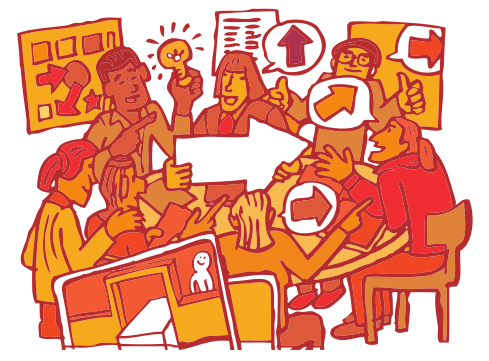Survey on structural exclusions in the party Bündnis 90/die Grüne


Survey on structural exclusions in the party Bündnis 90/die Grüne
For an inclusive and representative film industry in front and behind the camera
So far, hardly any quantitative and qualitative surveys have examined discrimination, barriers to access and career opportunities for persons affected by discrimination in German political parties. On behalf of the Federal Executive Committee of the party Bündnis 90 / die Grünen, our qualitative survey on experiences of discrimination within the party is a first step towards gaining specific insights into the mechanisms of exclusion and effective measures for inclusion within the Green party.
The demand for inclusion and full participation for discriminated groups affects all sectors of society. It is particularly important in terms of the representativeness of political parties. However, the proportion of political party members and office holders with experience of discrimination is very low in Germany. People with experience of racism are particularly underrepresented in German political parties.
"Vielfalt entscheidet - Diversity in Leadership" was commissioned by the Federal Executive Committee of the party Bündnis 90/Die Grünen to conduct qualitative surveys to shed light on internal structures. The focus groups aimed to gain a better understanding of experiences of discrimination and diversity dynamics within the party.
What we have done
In four focus groups in the fall of 2020, participants who hold an office or mandate at the federal, state or district level or are otherwise heavily involved within the party, shared their experiences with discrimination within the party. They engaged in conversation about their experiences and shared ideas about what structures are inclusive and empowering and what they expect from the party. During the focus groups, we looked at the discrimination dimensions of racism, hetero- and cis-sexism, and classism, and how these work intersectionally. The dimension of racism was addressed in a focus group with individuals active at the state and national levels and in another focus group with individuals active at the county level.
Participants were people who had themselves been affected by the particular form of discrimination discussed, which enabled us to create spaces in which individual experiences of discrimination in the party could be discussed openly. In order to hear many different perspectives on the topic, we also paid attention to intersectional experiences and diversity in terms of age, religion, gender identity, community connection within the groups, among others. The focus groups were conducted online due to pandemic restrictions, which facilitated the participation of party members from across the state. As a result, individuals from 11 states were represented. The online format also encouraged general time flexibility, making it easier for individuals with care responsibilities or limited mobility to participate.
Pioneer for structural change
The results of the focus groups provide information about structural discrimination and access barriers, but also about strategies for the retention and advancement of discriminated groups in the party. In addition, the results include concrete demands of the focus group participants to the party to break down barriers, enable participation and promote the empowerment of people experiencing discrimination in the party. The anonymized results of the focus group discussions served as preparation for the "diversity statute", which was adopted at the party congress in November 2020.
This was in line with the women's statute that the party adopted in 1986, making it a pioneer in terms of party political equality in the German party landscape. The Diversity Statute establishes the Diversity Department at the federal headquarters and the Diversity Council at the federal level, which are responsible for developing and implementing measures to reduce discrimination and promote the participation of groups facing racial discrimination. The progress of the structural change is to be scientifically evaluated every two years and presented at the Federal Delegates Conference.



